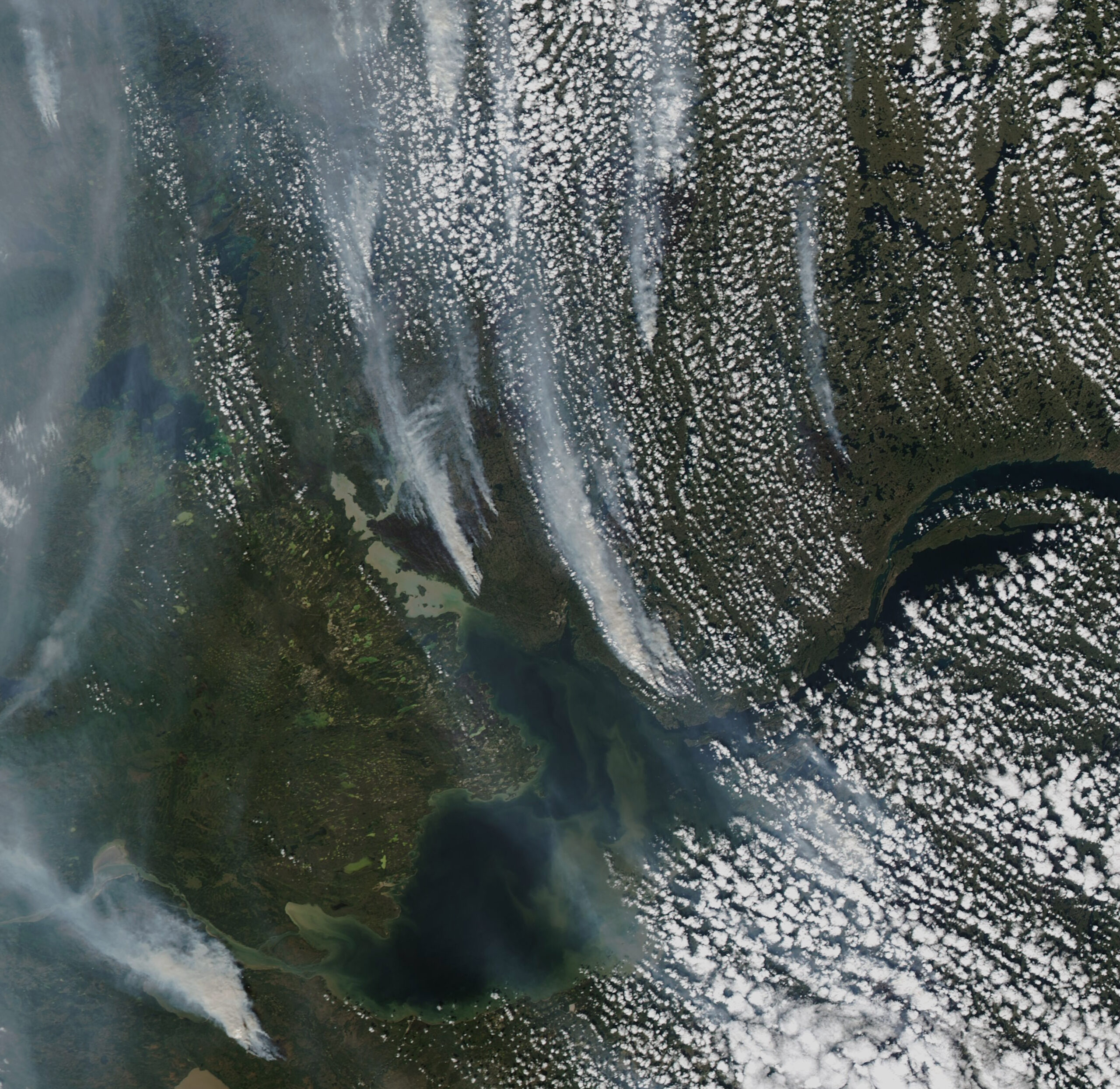A nightmarish, brutal year of wildfires keeps getting worse for Canadians.
With a little over a month to go until the autumnal equinox, blazes are wreaking havoc across the country, with significant fires in every province and territory.
One of those fires is threatening Yellowknife, the lone city in the Northwest Territories, which is home to much of its population. Authorities there have begun organizing an evacuation of the city, hoping to get most people out before the flames potentially reach the perimeter of the community.
“The wildfire situation has taken another turn for the worse, with the fire burning west of Yellowknife now representing a real threat to the city,” said Shane Thompson, NWT’s minister for the environment and climate change. (It has become common practice for Canadian provinces and territories to add the words “climate” or “climate change” to the title of their environmental ministries.)
“I want to be clear that the city is not in immediate danger, and there’s a safe window for residents to leave the city by road and by air,” Thompson emphasized at a press conference held on Wednesday evening. However, he suggested that Yellowknife residents leave no later than noon on Friday, August 18th.
“Without rain, it is possible [the fire] will reach the city outskirts by the weekend,” he said. “You put yourself and others at risk if you choose to stay later.”
“Critical, challenging days ahead – with two days of northwest to west-northwest winds on Friday and Saturday, which would push fire towards Yellowknife. Minimal precipitation in the forecast,” the ministry warned in a forecast published on August 17th at 8 PM. “These winds would push both the Behchoko/Yellowknife Fire and the Ingraham Trail where we do not want them to go.”
Meanwhile, in British Columbia, fires are shutting down key highways and threatening major communities in the province’s interior.
There’s a big fire near Kelowna that’s burning out of control.
5,500 properties are on evacuation alert and more than 1,000 others under order to leave due to the McDougall Creek wildfire, according to the CBC.
“The #McDougallCreekWildfire has jumped Okanagan Lake into Kelowna. Hundreds of residents along Clifton Rd in Kelowna are packing up and leaving,” Global’s Jamie Tawil tweeted, sharing this video.
CastaNet is monitoring the fires and posting regular updates.
The province closed Highway 1 between Hope and Lytton because of fires.
Not far from Kamloops, another populous interior community, the Lower East Adams Lake wildfire is also prompting evacuation alerts.
And conditions could quickly get worse.
The lead fire weather forecaster for the British Columbia Wildfire Service is worried about the next few days. “Unfortunately, come Thursday, we’re keeping a really close eye on this dry cold front… that’s going to sweep across the province,” he told the CBC. “It’s going to bring strong gusty winds shifting from the southwest to the northwest. We may see some lightning accompany this dry cold front on Thursday, which could have the potential of initiating new fires.”
When a fire weather forecaster says fire conditions are going to be “extreme,” it’s worth paying attention. There are many more weeks of dry weather ahead, which is going to make containing the fires that are already burning challenging. And there won’t be many resources available to fight any new fires that ignite.
As of today, there have been 5,765 total fires in Canada, with an affected area consisting of 13.749 million hectacres (33.97 million acres). Five people have died. 155,856 had been evacuated as of July 7th. Alberta and Quebec were particularly hard hit early on in the year; Alberta is now having to provide shelter to people who are evacuating Yellowknife to escape the fire danger there.
The recent tragedy in Maui is no doubt spurring the authorities in the Northwest Territories to act proactively to move people out of harm’s way. Yellowknife’s remoteness makes an evacuation logistically complex. It takes more than fourteen hours to drive from Yellowknife to Edmonton even with light traffic.

